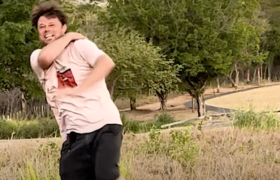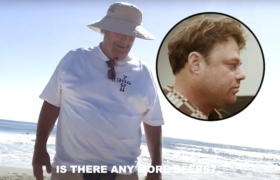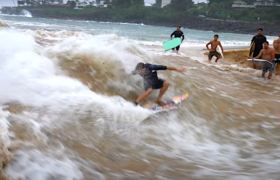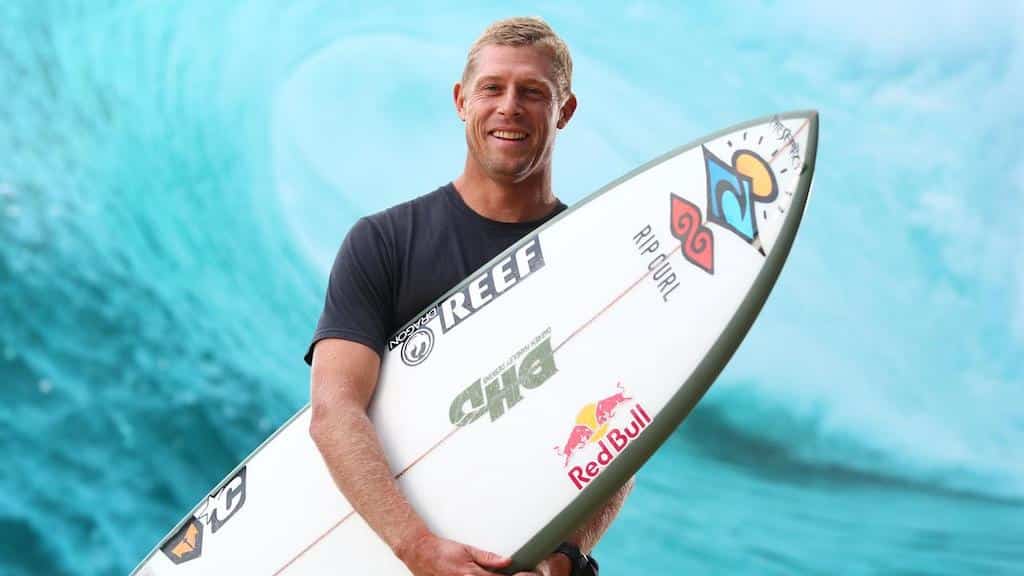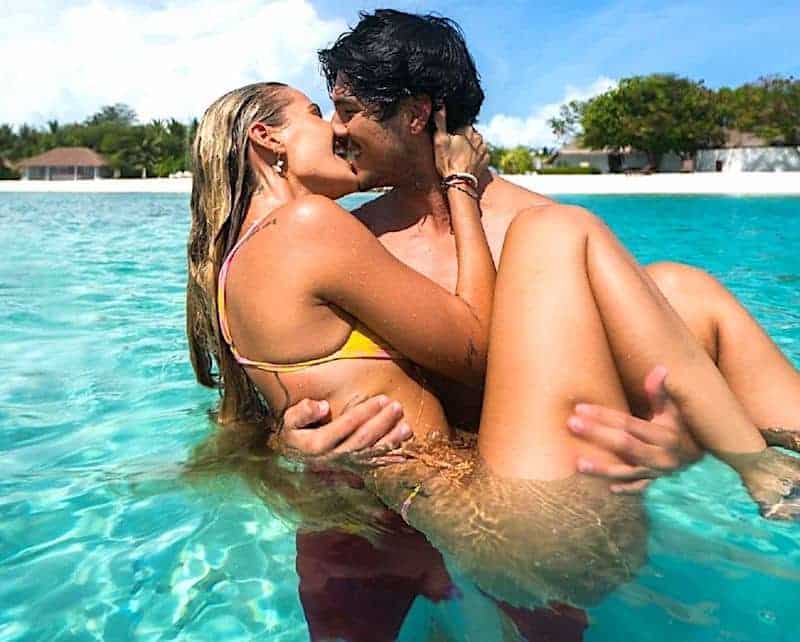"I'm in this fight to legalize surfing in Cuba!"
Ever collide with the gorgeous and resilient spirit of the Cuban people?
Once they hit the streets of America they possess an unyielding appetite for success that neither the apartment prices of NYC or the 15 dollar Coronas in Miami can suppress or quell.
Fueled from a former life where toilet paper is rationed at two squares a day and the faintest whisper against El Jefe will land you 30 years in cell block C, the Cuban vigor could carry countries on it backbone.
A point proved on a Spanish Harlem street corner between 111th street and Lexington Ave recently.
A summer time dominos game quickly gets heated with shouts echoing to the West Side Highway. A very wide and broad Harlem local with a teardrop tat in the corner of his eye asks the Cubans to stop.
To which they reply “FUCK THAT!”
A wide-eyed, deep and motionless stare is exchanged between the two until the Tear Drop Tat moves on, shaking his head.
Two bystanders watch all this unfold. One whispers to the other “The little Cuban has cojones.” To which the other replies: “These guys had to paddle 90 miles across the ocean on a raft made of abandoned styrofoam held together with duct tape, fighting off sharks with sticks. You think they give a shit about Just paroled Tear Drop Charlie.”
Ask any old Cuban and they will tell you stories of how, without two pennies to rub together and children begging for milk, the block would still be able to forage sugar cane from the fields, mix it with water, rum, lime and crushed mint leaves. Mix it in a forlorned plastic barrel with everyone dipping their cups and drink OG mojitos till two am while dancing to rumba.
Now, Makewild films has produced a look into a surf life we rarely have a chance to see or experience.
Raul and Fidel Castro are (were) the type of shepherds that likes, liked, to keep their flock tight. Therefore, most water sports in Cuba are illegal for fear of defection to Key West 90 miles away.
This story is about Frank and Yaya, two young Cuban surfers who are trying to legalize and legitimize surfing in a country where taking flight to the water never had a more sinister, literal. and taboo connotation. Scenes from the trailer show the pair running from the water, surfboard under arm, with police cars chasing them down the street.
Per the synopsis,
In Cuba, where people fled en masse from Fidel Castro’s regime, surfing and other water activities have been banned for decades. Today, surfing exists in a murky legal gray area and is viewed with suspicion by the Cuban authorities.
Despite these challenges, a group of passionate Cuban surfers is determined to carve out a place for surfing in the country’s culture of athletic excellence. Frank is one of the most established surfers and to many the best surfer on the island. Yaya is a community leader and surfer who has made it her mission to ensure that the next generation can surf freely. When surfing is announced as an official sport for the Tokyo Olympics, they see their chance to bring their sport out of the shadows and on to the world stage. What follows is a tale of underground surfers building their own boards from scratch, dodging the authorities as they travel the island looking for the perfect wave, and attempting to legitimize their passion by persuading the Cuban authorities to field an Olympic team.
When Frank is invited to participate in a qualifier event out of the country, he must decide whether to compete, which would mean embarking on an illegal journey and risking permanent separation from his wife and newborn baby. Yaya is similarly torn when she is invited to participate in a surf symposium in Hawaii. Havana Libre is a story of people following their passion at great danger to themselves and ultimately begs the question: what would you risk to chase your dreams?
Frankie says, “In Cuba, just being alive makes you brave. To practice a sport like surfing, even more so.”
His, Yaya, who is pregnant, adds: “For some people, they see surfing as something simple. For us surfers, it’s the best thing we have in our lives. The problem is sometimes surfing is considered illegal. Along with Frankie and the others, I’m in this fight to legalize surfing in Cuba. I will never stop surfing.”
